About the Journal
Journal of Daylighting is a peer-reviewed international journal devoted to investigations of daylighting in buildings. It is the leading journal that publishes original research on all aspects of Energy, buildings, and lighting.
Quartile Ranking JCR - Q2 (Energy (miscellaneous))
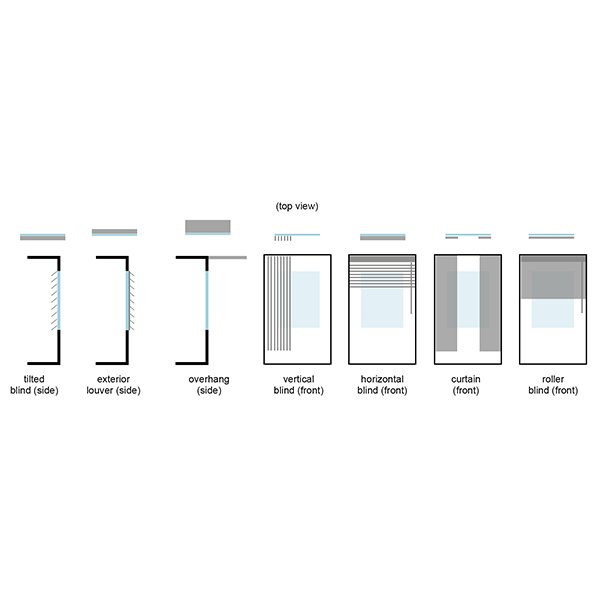
REVIEW ARTICLE
Daylight Enhancement Strategies for Historic Buildings: A Critical Review of
With the growing urgency to reduce carbon emissions in the built environment, enhancing daylight availability in historic buildings has become a critical and challenging task due to the required balance between environmental sustainability objectives and cultural heritage conservation principles.
Journal of Daylighting 13 (2026) 57-75
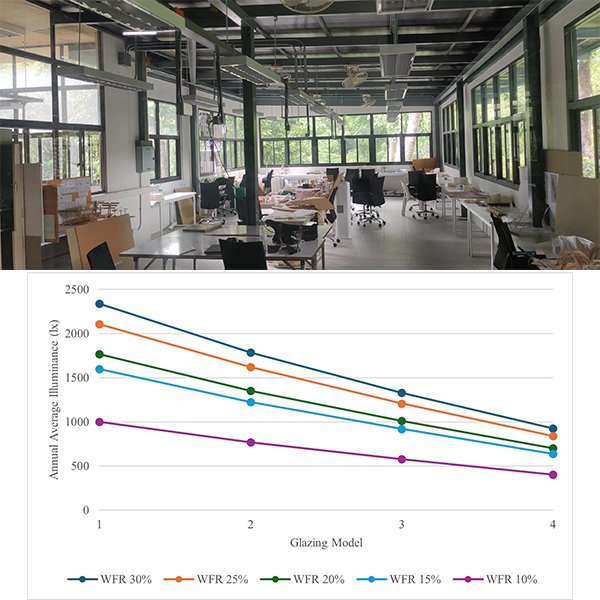
RESEARCH ARTICLE
Optimizing Window-to-Floor Ratio and Glazing for Daylight and
In tropical climates, where cooling loads dominate building energy use, minimizing cooling demand is particularly critical for achieving carbon neutrality in educational buildings while maintaining adequate daylight and visual comfort.
Journal of Daylighting 13 (2026) 44-56
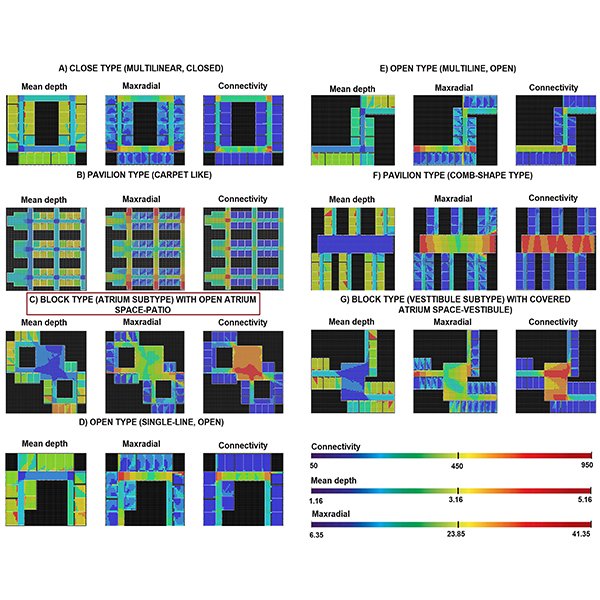
RESEARCH ARTICLE
Comparative Analysis of Daylight and Visual Quality Across School Plan
Designing daylight-based spaces has gained increasing attention due to its numerous benefits and alignment with global sustainability standards. However, limited research has focused on how architectural layouts affect daylight distribution and visual quality, particularly in educational environments.
Journal of Daylighting 13 (2026) 20-43

RESEARCH ARTICLE
Effects of Urban Obstructions on Spatial Daylight Autonomy (sDA) and
The limited research on obstruction-driven daylight reduction continues to hinder efforts to optimize natural daylight in compact mid-rise residential buildings.
Journal of Daylighting 13 (2026) 1-19
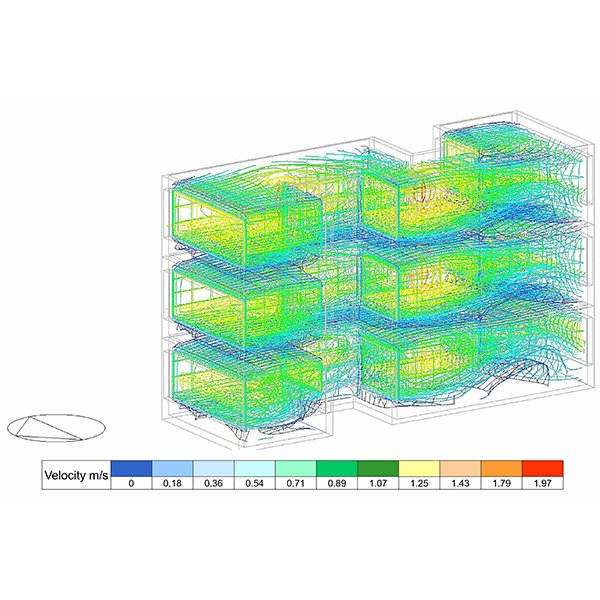
RESEARCH ARTICLE
Integration of light well through generative design to achieve optimal
A case of urban densification in heritage towns like Pondicherry has led to deep-plan wall to wall layouts, where the depth of the plot is considerably more than its width and multi-storey buildings with limited access to day light and natural ventilation.
Journal of Daylighting 12 (2025) 548-560
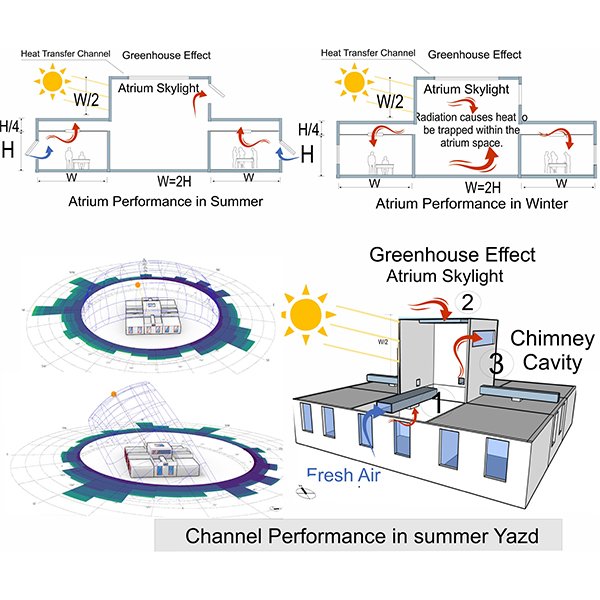
RESEARCH ARTICLE
Design Optimization of Atrium Skylights for Enhanced Office Building Performance
The increasing demand for energy and the impact of climate change underscore the necessity of energy-efficient building designs. This study optimizes atrium skylights as a passive design solution for Yazd, Iran aiming to enhance thermal and visual comfort.
Journal of Daylighting 12 (2025) 520-547
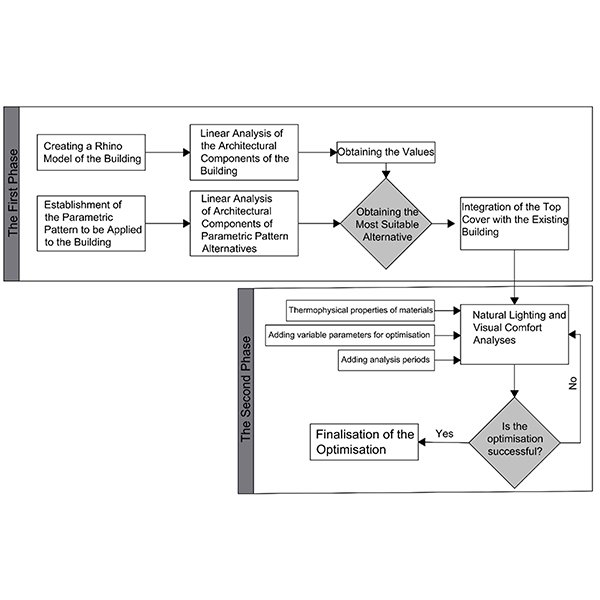
RESEARCH ARTICLE
Parametric Exploration of Natural Lighting and Visual Comfort in Contemporary
The re-functioning of historical buildings frequently necessitates new additions. This is particularly relevant for historical buildings with open courtyards, where interventions often involve the installation of upper covers using contemporary materials and techniques This issue can become especially apparent in historical buildings that are completely enclosed with transparent materials, raising concerns about the greenhouse effect and its potential to compromise indoor comfort.
Journal of Daylighting 12 (2025) 506-519
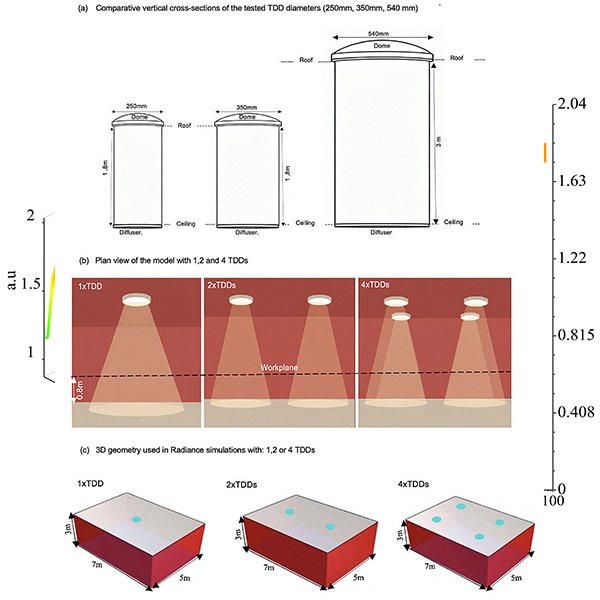
RESEARCH ARTICLE
Multi-Criteria Optimization of Tubular Daylighting Devices for Classrooms in
In educational architecture, particularly in high-solar climates, achieving a balance between ample daylight and visual comfort is a significant challenge.
Journal of Daylighting 12 (2025) 491-505
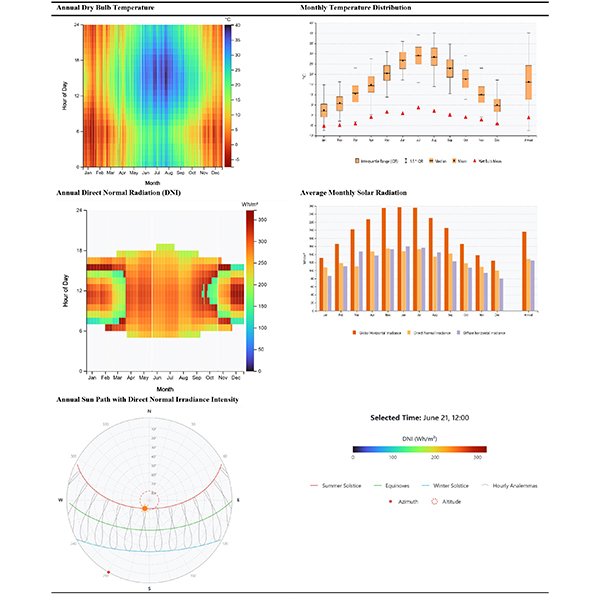
RESEARCH ARTICLE
Multi-objective Optimization of Girih Tile Patterns and Colored Glass
Efficient energy use is vital in architecture, and the building envelope plays a key role in aesthetics, thermal comfort, energy efficiency, and natural lighting.
Journal of Daylighting 12 (2025) 441-467
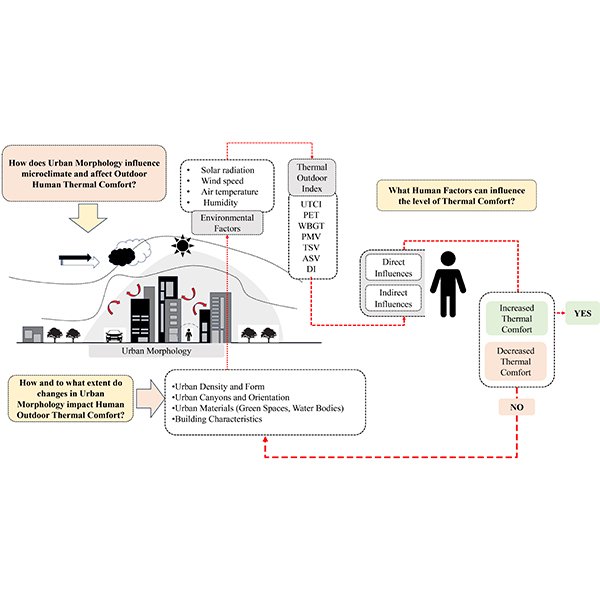
REVIEW ARTICLE
Human Interaction with Urban Morphology under the Influence of Urban
Outdoor urban spaces are essential to residents’ well-being, yet their thermal comfort is increasingly compromised by urbanization and climate change. .
Journal of Daylighting 12 (2025) 468-490
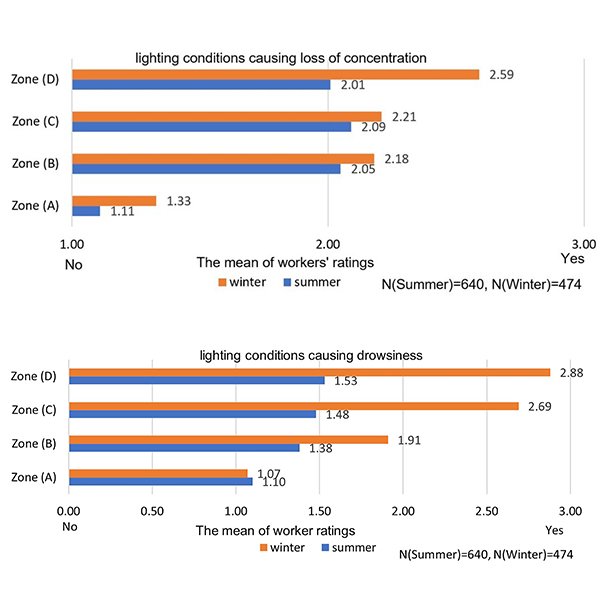
RESEARCH ARTICLE
Evaluating the Impact of Lighting Conditions on Workers’ Safety and
Lighting is a key element of design that plays a significant role in affecting workers’ health and safety in industrial workspaces. Given the scarcity of scientific studies addressing visual environments in relation to workers health in industrial buildings, this field study was conducted to explore workers' responses to multiple lighting scenarios inside production halls on their occupational health and safety in six factories in Sadat City, Egypt. .
Journal of Daylighting 12 (2025) 420-440
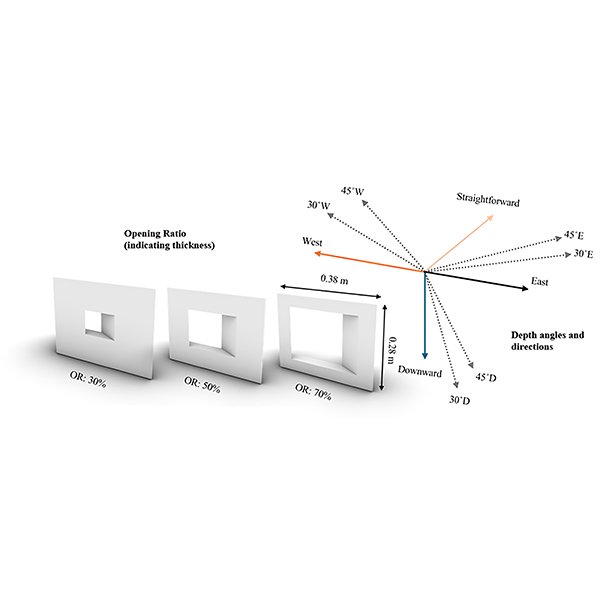
RESEARCH ARTICLE
Evaluating Daylighting Performance of Parametric Mashrabiya in Mediterranean Climate: A
This study examines the daylighting performance of parametric Mashrabiya-inspired shading devices in a Mediterranean climate, aiming to enhance occupant comfort and visual performance.
Journal of Daylighting 12 (2025) 397-419
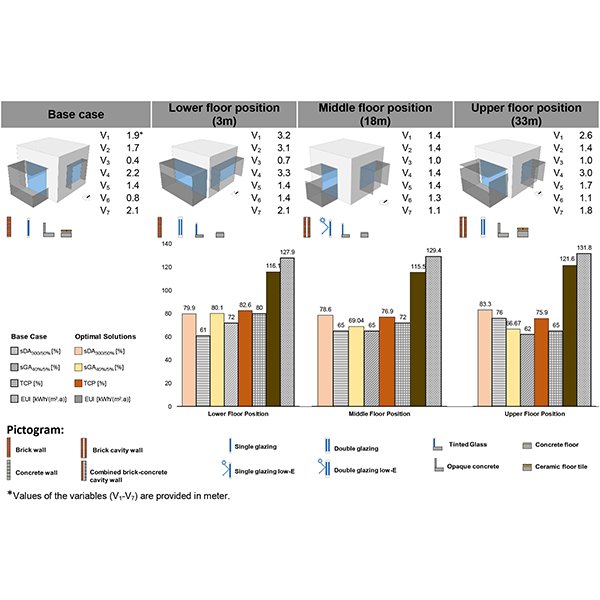
RESEARCH ARTICLE
Height-Responsive Balcony-Integrated Envelope Design for High-Rise Residential
Balconies function as essential shading elements within the building envelope, playing a critical role in regulating occupant comfort and energy efficiency.
Journal of Daylighting 12 (2025) 375-396
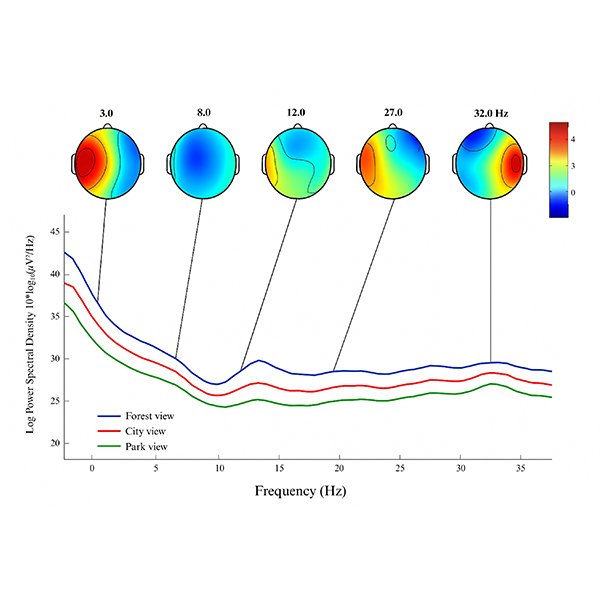
RESEARCH ARTICLE
EEG-Based Neurophysiological Responses to Classroom Window Views in Green
This study examines the neurophysiological responses of students to different classroom window views - forest, park, and city - within energy-efficient, green campus environments.
Journal of Daylighting 12 (2025) 359-374
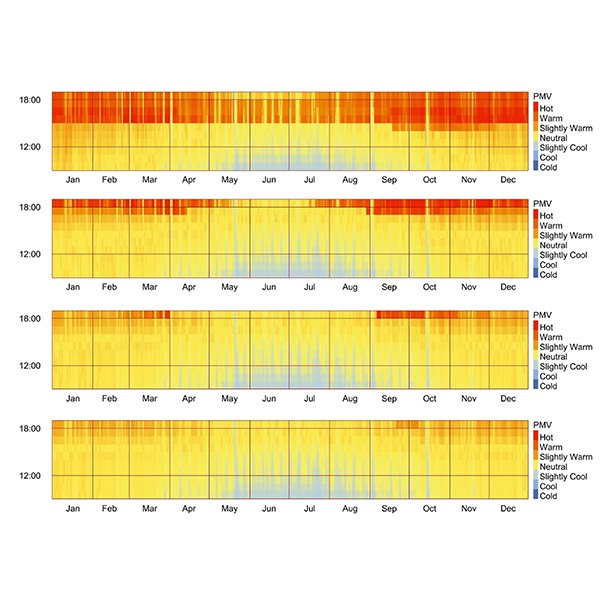
RESEARCH ARTICLE
Enhancing Year-Round Thermal Comfort with Solar Control Films: A
Windows significantly contribute to thermal discomfort in high solar irradiance climates by allowing excessive heat gains and uneven indoor temperatures.
Journal of Daylighting 12 (2025) 343-358
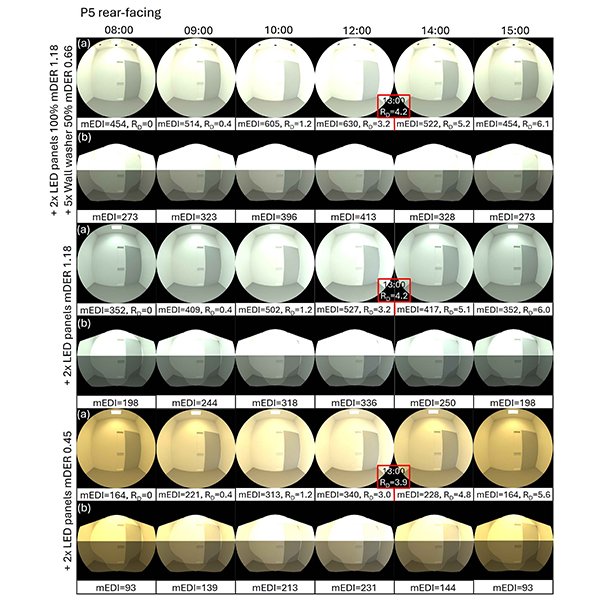
RESEARCH ARTICLE
Evaluating Visual and Beyond-Vision Light Effects and Energy Consumption
Light influences human physiology and psychology through visual and beyond-visual effects, collectively termed ‘integrative lighting.’ Human responses depend on luminous (quantity, spectrum, directionality) and temporal (timing, duration, history) factors, yet no studies examined their combined influence on integrative lighting. Th.
Journal of Daylighting 12 (2025) 306-342
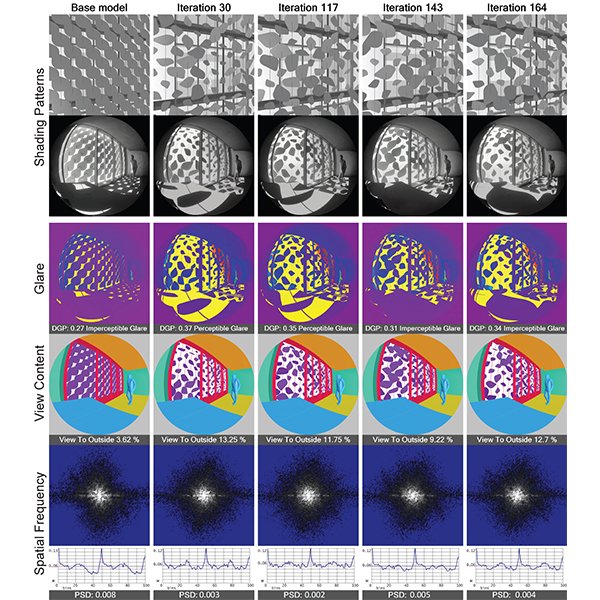
RESEARCH ARTICLE
Occupant-Centric Visual Comfort Assessment and Optimization of Passive Solar
This study introduces a comprehensive computational framework integrating image-based simulations, spatial frequency analysis, and multi-objective optimization to evaluate and optimize passive solar shading devices from an occupant-centric perspective.
Journal of Daylighting 12 (2025) 293-305
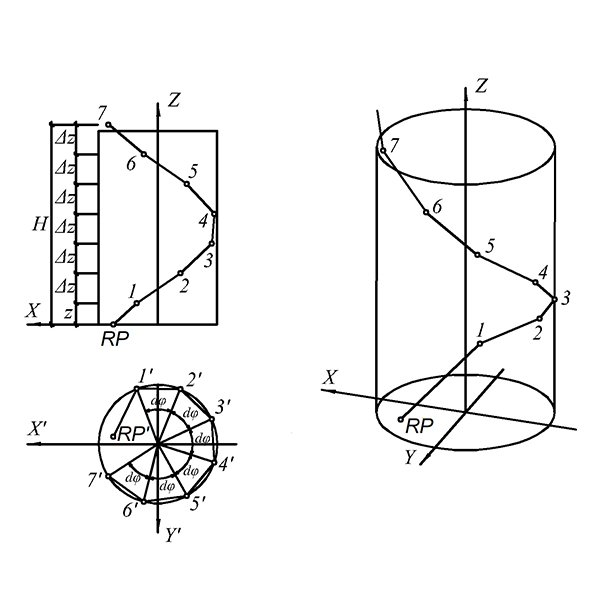
RESEARCH ARTICLE
Determination of Efficiency of the Vertical Specularly Reflecting Cylindrical Light
Article is devoted to determination of efficiency of the vertical specularly reflecting cylindrical light shaft for various types of the firmaments standardized by CIE (International Commission on Illumination).
Journal of Daylighting 12 (2025) 278-292
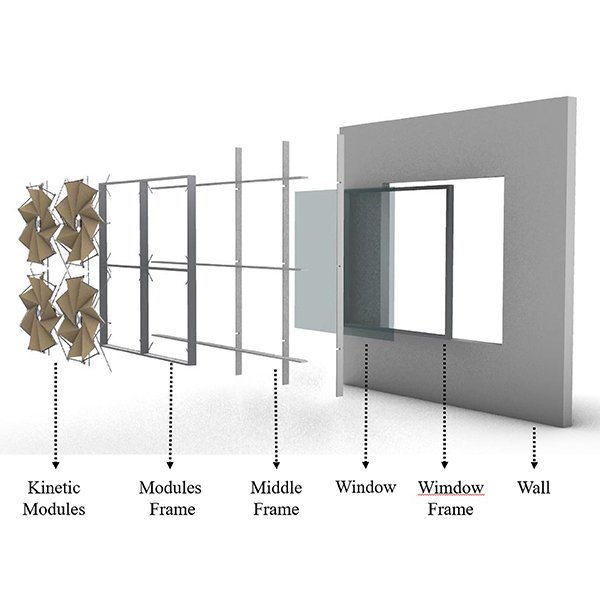
RESEARCH ARTICLE
Designing a Kinetic Façade to Control Glare: Inspiration of
In this study, to control glare in buildings with glass facades, a kinetic facade was designed using a pattern inspired by nature. Accordingly, in this study, due to the essential similarity of buildings with plants regarding the inability to move and location, in the first step, plants and their morphology were examined.
Journal of Daylighting 12 (2025) 265-277

RESEARCH ARTICLE
Tessellation-Based Origami-Inspired Movable Façade for Daylighting and
This study emphasizes the importance of daylight performance in interior spaces as a critical factor in achieving global Sustainable Development Goals, including energy efficiency, environmental sustainability, and healthy living conditions.
Journal of Daylighting 12 (2025) 252-264

RESEARCH ARTICLE
Design Alternatives of Light Shelves using Altmann Linkage
This paper proposes a novel new light shelf design with Altmann linkage using its kinetic principles: geometry and rotational angles. As previous studies explain a light shelf’s design in two ways: static and movable, the proposed one in this study has the potential to track the path of the sun due to its diagonal movement. .
Journal of Daylighting 11 (2024) 391-407
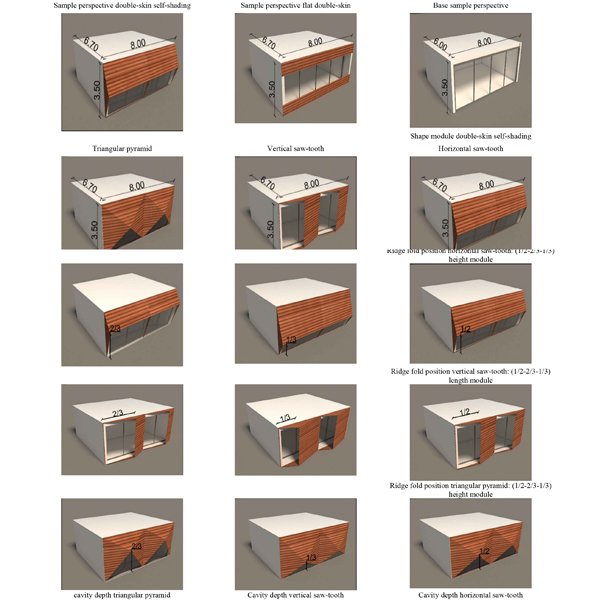
RESEARCH ARTICLE
Optimum Geometry of Double-skin Self-Shading Facade of Classrooms
The significant energy consumption in educational spaces worldwide and its environmental impact greatly influence the quality of space, learning levels, and student comfort.
Journal of Daylighting 11 (2024) 372-389
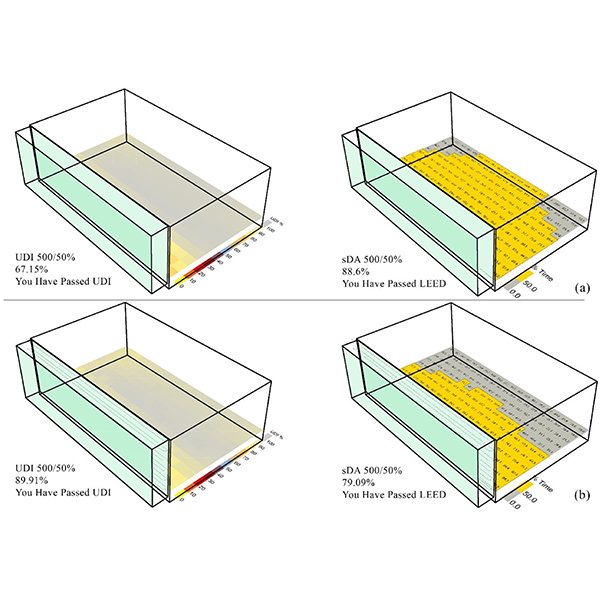
RESEARCH ARTICLE
Parametric Optimization Approach to Evaluate Dynamic Shading Within Double-Skin
This research aims to support the choice of an appropriate dynamic louver shading system (DL-SS) within double-skin facade insulated glazed units (DSF-IGUs) as a high-performance integrated window system (DSF-IGUs/DL-SS) that meets both thermal and energy performance via daylight availability under a tropical climate.
Journal of Daylighting 11 (2024) 349-371
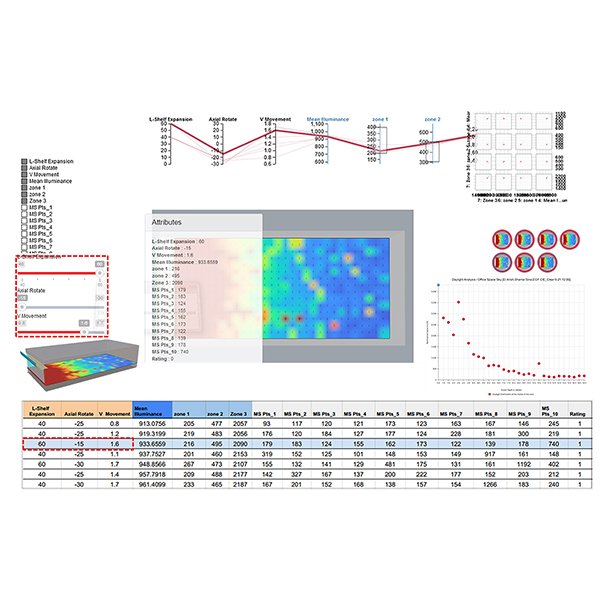
RESEARCH ARTICLE
Artificial Neural Network to Predict Curvature Light Shelf Design Related
Energy Optimization in building design field now has been revolutionized due to AI and machine learning applications. Leveraging daylight to reduce artificial lighting consumption holds promise for significant energy savings, yet the nonlinear nature of daylight patterns poses challenges in prediction and optimization.
Journal of Daylighting 11 (2024) 334-348
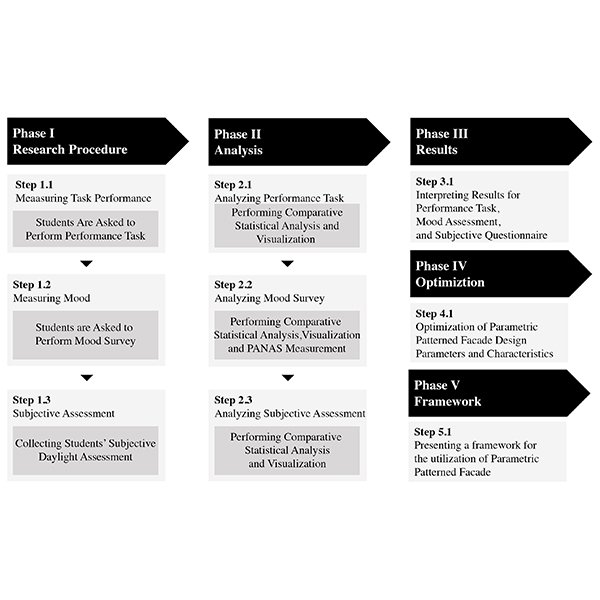
RESEARCH ARTICLE
Investigation of the Effect of Parametric Patterned Façade and
Parametric design is one of the thriving contemporary architectural treatments that not only has an influence on the design of building envelopes but is capable of affecting the users physically and psychologically.
Journal of Daylighting 11 (2024) 312-333
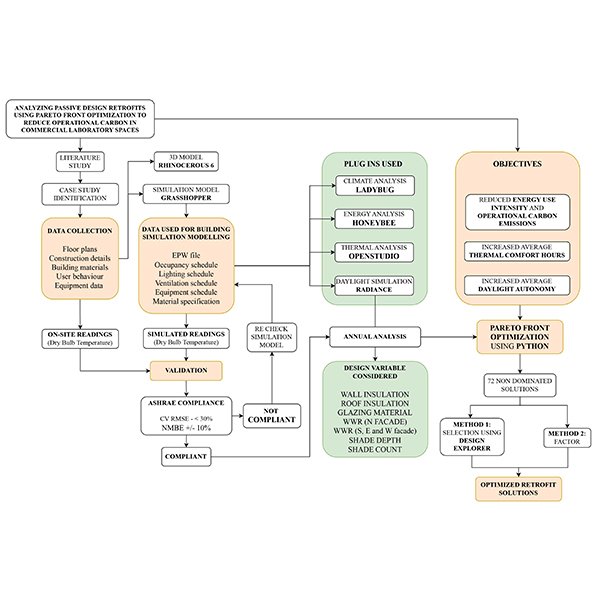
RESEARCH ARTICLE
Analyzing Passive Design Retrofits using Pareto Front Optimization to Reduce
Buildings are one of the leading sources of carbon emissions in the world. Most of the carbon emissions are released during the operation phase of the building.
Journal of Daylighting 11 (2024) 290-311
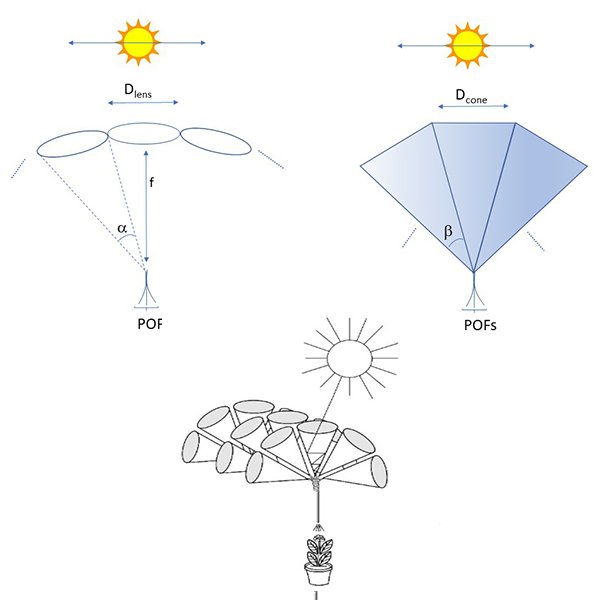
RESEARCH ARTICLE
Tracker-less Sunlight Collection Apparatus, using an Array of Optical
The paper describes an array of optical cones as a potential configuration for tracker-less daylighting, without using an electro-mechanical tracker. Subsequently, a single optical cone is analyzed, mainly in terms of sunlight collection efficiency and acceptance angle, as a function of the cone's geometrical dimensions.
Journal of Daylighting 11 (2024) 279-289
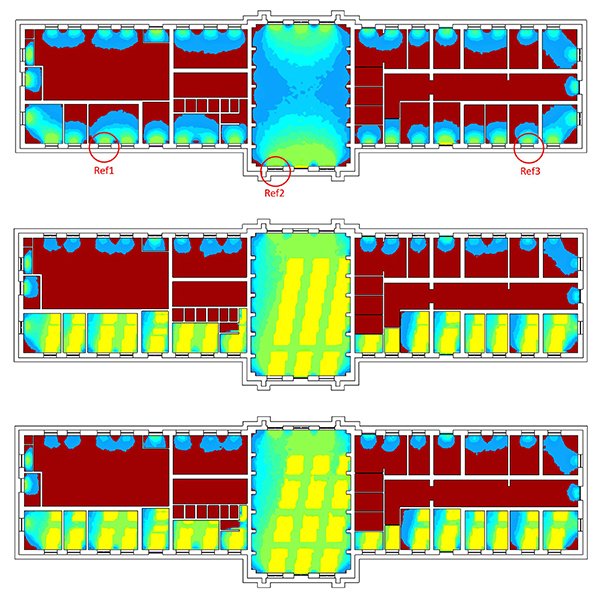
RESEARCH ARTICLE
Analytical Study on Reducing the Heating Effects of Daylight and
Climate change is an environmental issue that is rapidly escalating due to the effects of global warming. The increase in carbon emissions, along with various human activities such as industrial processes, land use changes, and the reckless consumption of natural resources, are among the primary causes of global warming.
Journal of Daylighting 11 (2024) 268-278
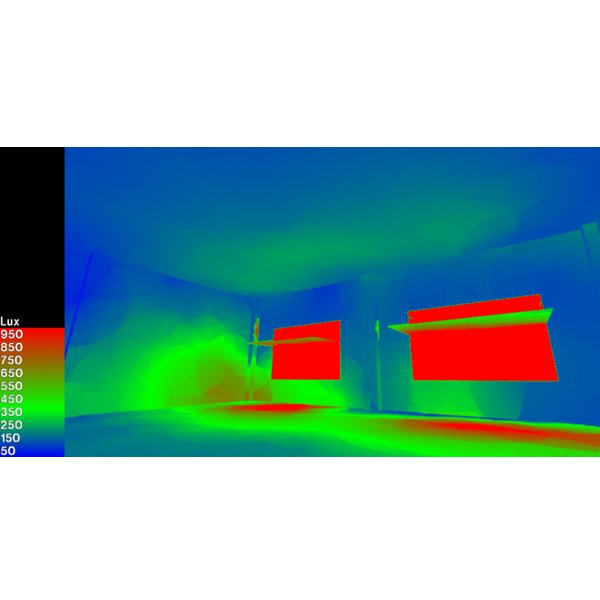
RESEARCH ARTICLE
Optimising Daylighting Performance Through Side light with Passive Devise Design
Passive lighting design plays an important role in providing natural lighting to save electricity consumption in buildings. This study aims to investigate the performance of natural lighting and the potential of alternative designs through sidelights with 3 shading device models and light shelves with different sizes in north, west, east, and south orientations.
Journal of Daylighting 11 (2024) 247-267
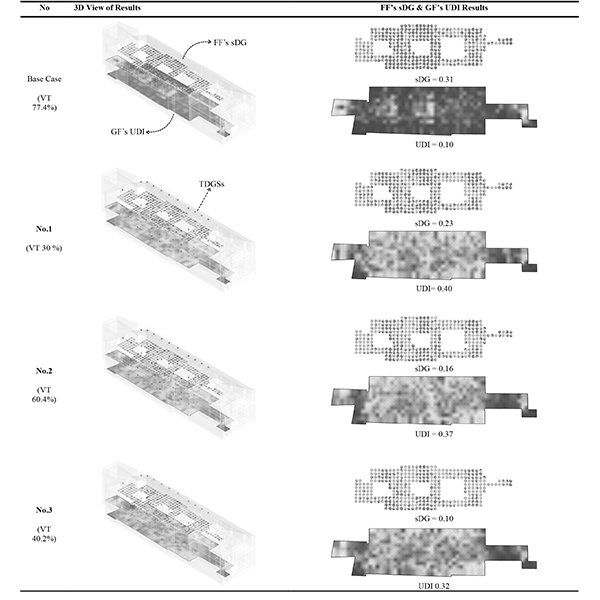
RESEARCH ARTICLE
Daylight Enhancement Strategies Through Roof for Heritage Buildings
Enhancing daylighting in heritage buildings is a complex challenge that requires a delicate balance between preserving architectural integrity and improving visual comfort.
Journal of Daylighting 11 (2024) 234-246
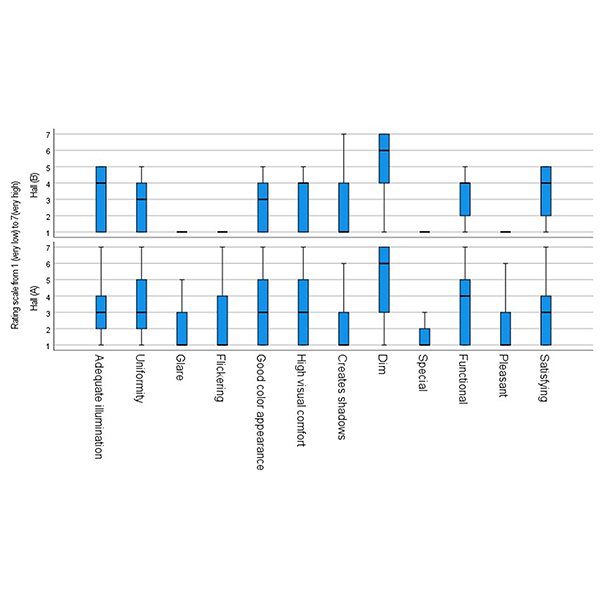
RESEARCH ARTICLE
Investigation of daylight availability in university dining halls: A case
This study evaluates the availability of daylight inside a university’s dining halls over two days (one sunny and one cloudy) using light meters in real-life sittings. .
Journal of Daylighting 11 (2024) 216-233
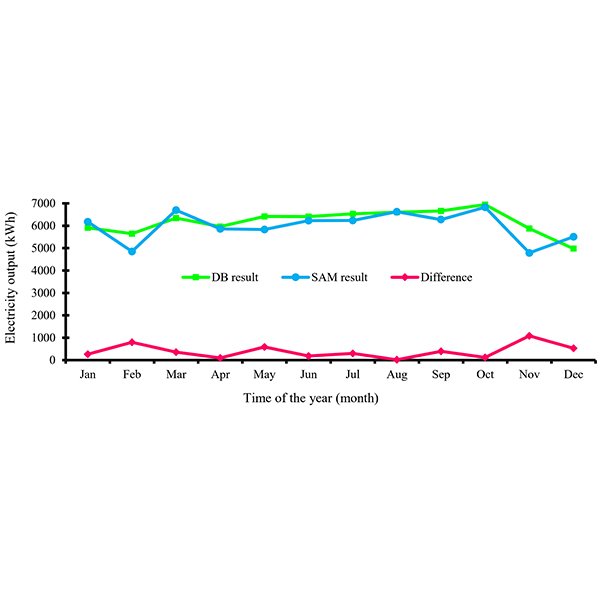
RESEARCH ARTICLE
Energy efficiency in smart schools using renewable energy strategy
As smart schools increasingly rely on technology, achieving energy efficiency becomes crucial for cost reduction and sustainability. This study investigates energy efficiency strategies in smart schools, focusing on the integration of renewable energy technologies.
Journal of Daylighting 11 (2024) 203-215
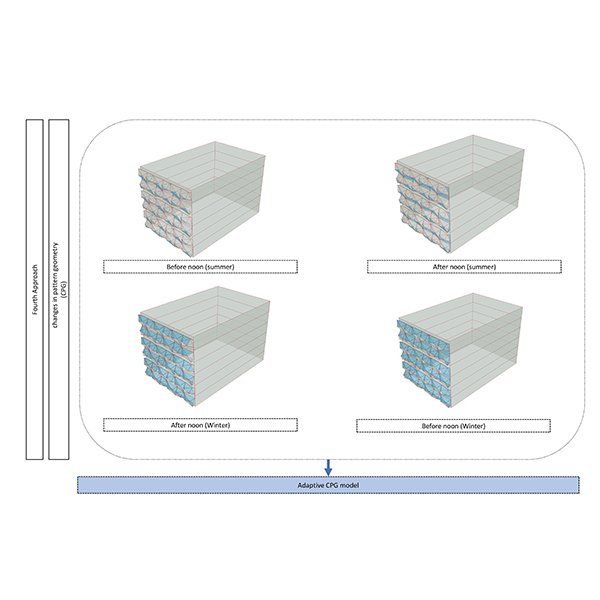
RESEARCH ARTICLE
Synergistic Strategies: Comparing Energy Performance in Climate-Adaptive Building Envelopes
Climate change and improving building energy performance are significant contemporary concerns. Conversely, climate-adaptive building envelopes (CABEs) offer promising solutions to enhance structural performance amidst fluctuating environmental conditions.
Journal of Daylighting 11 (2024) 181-202
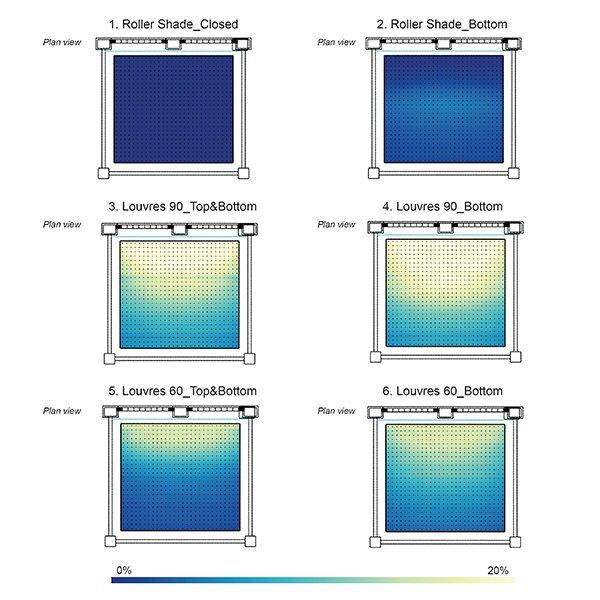
RESEARCH ARTICLE
Design Adjustments For Daylighting and Visual Comfort in a Classroom
This paper evaluates how design adjustments applied to roller shades and louvres (namely the height of the shadings head and the angles of the louvre slats) can improve their annual and spatial effectiveness to provide autonomous daylight levels, reduce daylight glare problems, and offer views outside.
Journal of Daylighting 11 (2024) 165-180
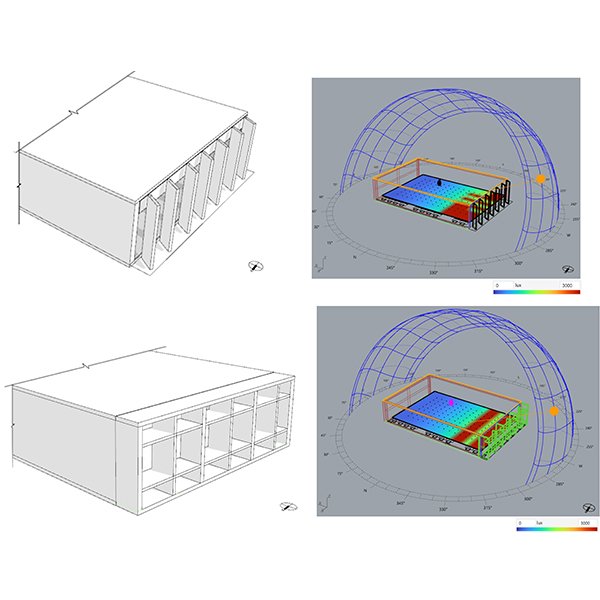
RESEARCH ARTICLE
Performance of Shading Against West Glass Facades to Optimise Daylight,
In tropical urban areas, the vertical facades of buildings often play a crucial role in capturing solar radiation and heat, especially for office buildings facing west during the afternoon.
Journal of Daylighting 11 (2024) 131-148
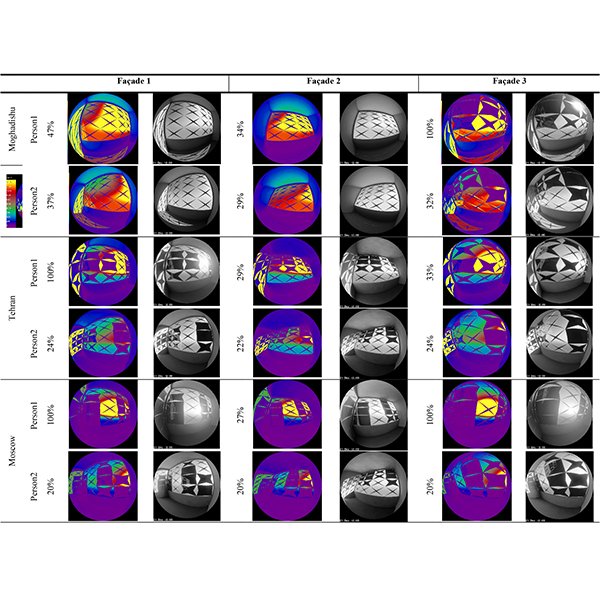
RESEARCH ARTICLE
Designerly Approach to Design Responsive Façade for Occupant Visual
In recent years, attention has focused on improving the health and satisfaction of employees by enhancing visual comfort in workplaces. This involves providing adequate natural daylight, glare control, and outdoor views.
Journal of Daylighting 11 (2024) 149-164
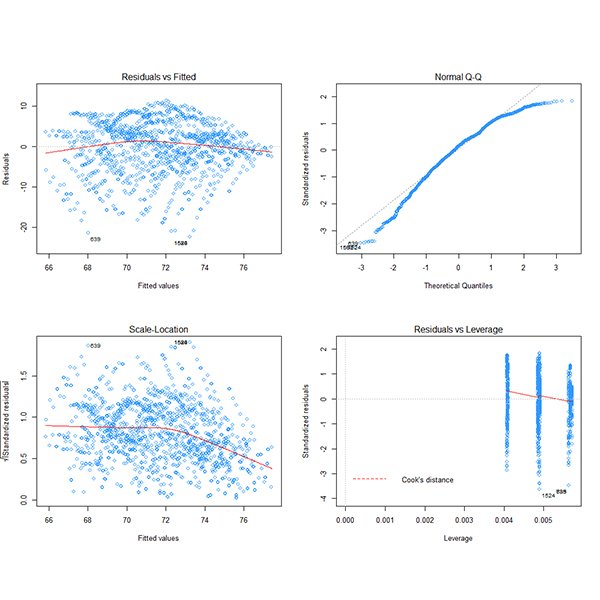
RESEARCH ARTICLE
Geometry Optimization of Industry Buildings for Energy-Driven Design Development
Even though the manufacturing industry consumes roughly 54% of total available energy globally, little consideration has been devoted to optimizing energy in the early stages of industry design, particularly in densely populated cities.
Journal of Daylighting 11 (2024) 119-130
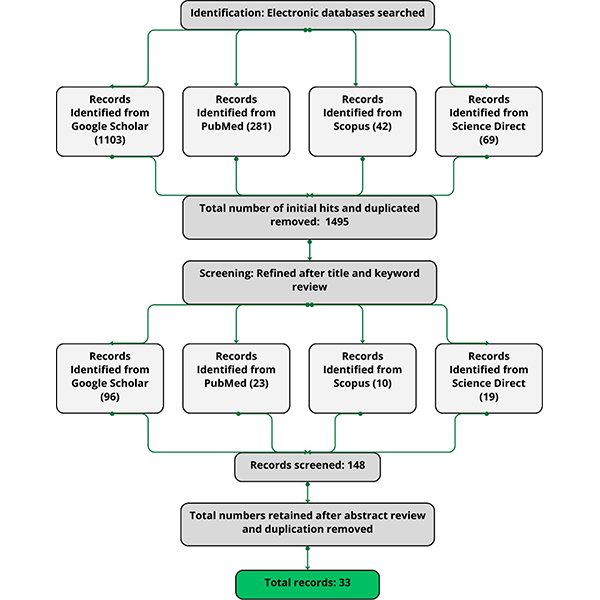
REVIEW ARTICLE
Exploring Methodological Considerations: A Literature Review on How Lighting Affects
The impacts of lighting conditions on human circadian rhythms, sleep quality, and cognitive performance have been extensively investigated in the past two decades; however, these studies have yielded inconclusive and variable outcomes.
Journal of Daylighting 11 (2024) 97-118

RESEARCH ARTICLE
Enhancing Visual Comfort and Energy Efficiency in Office Lighting Using
The number of desk workers who frequently conduct their jobs at home has increased dramatically during Covid-19. Work-from-home flexibility makes it attractive for workers and companies, resulting in a “Work-Style Reform” after the Covid-19 pandemic. Ho.
Journal of Daylighting 11 (2024) 69-96
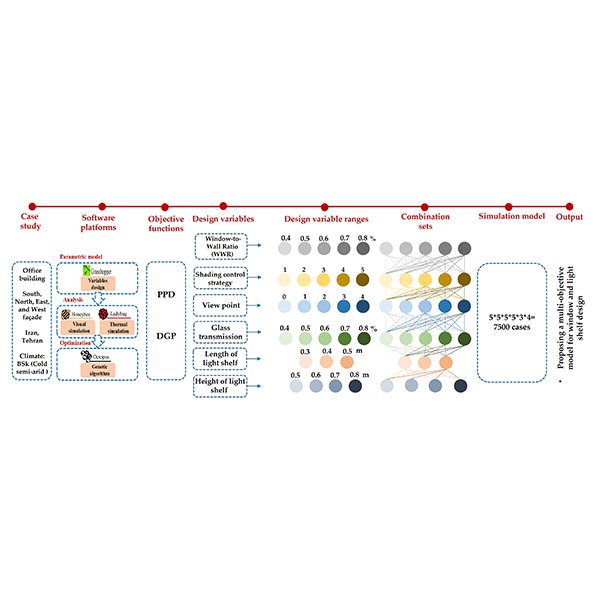
RESEARCH ARTICLE
A Multi-objective Optimization of Window and Light Shelf Design
In office buildings, an efficient design of windows and using light shelves as a passive design strategy significantly influence the thermal and visual comfort of occupants while enhancing the productivity and health of users.
Journal of Daylighting 11 (2024) 55-68
Article Publishing Charge (APC)
No publication fees are charged to authors, and articles are published as open access.
Publication timeline
| 3 days
Submission to first decision |
50 days
Submission to acceptance |
70 days
Submission to publication |
Editorial board

Dr Canan Kandilli
Usak University, Turkey

Prof Umberto Berardi
Politecnico di Bari, Italy

Dr Ferdinando Salata
University of Rome, Italy

Dr. Kacem Gairaa
center for renewable energy development, Algeria

Prof. Antonio Manuel Peña García
University of Granada, Spain

Dr Boon Han Lim
Universiti Tunku Abdul Rahman, Malaysia

Prof. Nabil Elminshawy
Port Said University, Egypt

Prof Francesco Asdrubali
University of Perugia, Italy

Dr Susana Lagüela López
University of Vigo, Spain

Dr Guiqiang Li
University of Science and Technology of China, China

Dr Arsenio Barbón
University of Oviedo, Spain

Prof. Lambros T. Doulos
Hellenic Open University, Greece

Dr Valerio Roberto Maria LO VERSO
Politecnico di Torino (Polytechnic University of Turin), Italy

Dr Paola Sansoni
CNR-INO, Italy

Prof. Yuehong Su
University of Nottingham, UK

Omid Nematollahi
Isfahan University of Technology, South Korea

Dr Marina Bonomolo
University of Palermo, Italia

Dr. Feride Şener Yılmaz
Istanbul Technical University, Turkey

Dr Seyed Morteza Hosseini
Aalborg University, Denmark

Dr Petar Pejic
University of Niš, Serbia

Dr Mohammed Salah Mayhoub
Al-Azhar University, Egypt

Dr Ahmed A. Y. Freewan
Jordan University of Science and Technology, Jordan

Dr Vincenzo Costanzo
University of Catania, Italy

Dr Paula M. Esquivias
University of Granada, Spain

Dr Osama Mohamed Omar
University of Bahrain , Bahrain

Dr Rizki A. Mangkuto
Institut Teknologi Bandung, Indonesia

Dr. Francesco Nocera
Department of Civil Engineering and Architecture, University of Catania (ITALY), Italy

Dr Francesco Sommese
University of Naples Federico II, italy

Dr Hui Lv
Hubei University of Technology, China

Faris Ali Mustafa
Salahaddin University - Erbil, Iraq

RESEARCH ARTICLE
Simulation of Daylighting Conditions in a Virtual Underground City
From the Piranesi fantastic architectures to the animation movies and video games of the last thirty years, a new design approach has been introduced and developed: the design of the virtual space.
Journal of Daylighting 2 (2015) 1-11
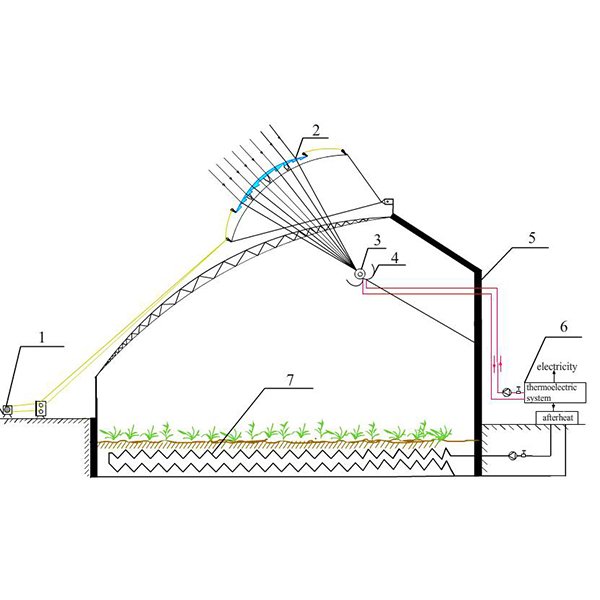
RESEARCH ARTICLE
Optical Analysis of A Sliding-Type Cylindrical Fresnel Lens Concentrating
Agricultural greenhouses are commonly built around cities to supply residents with agricultural products or green plants. With an increasing demand for plants’ growing environment, the temperature and illumination inside the greenhouses are counted especially during cold winter. .
Journal of Daylighting 8 (2021) 110-119
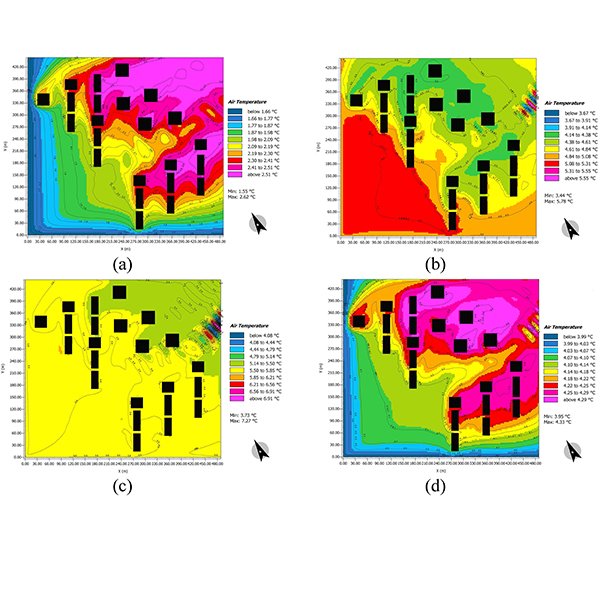
RESEARCH ARTICLE
The Effect of Sky View Factor on Air temperature in
Urban geometry is defined by the height, length, width, and distance of buildings, which affect the urban environment and its microclimate, especially a high-rise and high-density urban environment, such as Tehran.
Journal of Daylighting 6 (2019) 42-51

REVIEW ARTICLE
Daylight Transport Systems for Buildings at High Latitudes
This paper is a literature study of daylight transport systems aiming at selecting the most appropriate ones for application at high latitudes. It is limited to the systems that transport light at a long distance from the façade and distribute it either in the building core or at a rear place in a room adjacent to the façade. .
Journal of Daylighting 6 (2019) 60-79
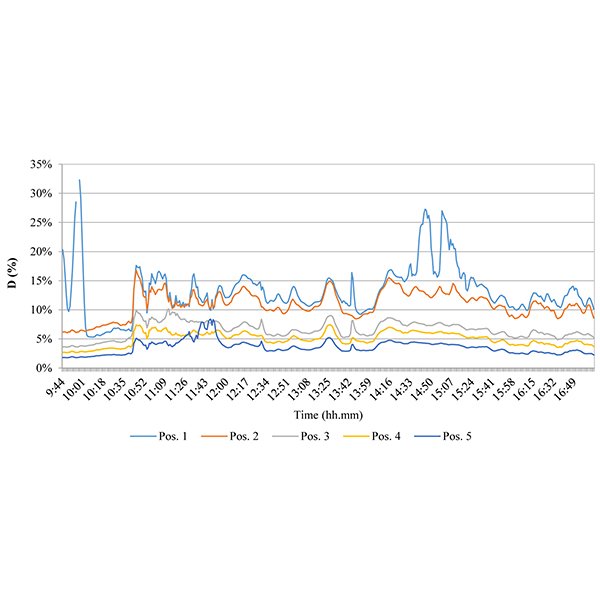
RESEARCH ARTICLE
Experimental Analysis of the Performance of Light Shelves in Different
Daylight plays a significant role in achieving energy saving and comfort in buildings. It is in accordance with the human circadian rhythms and allows the best visual conditions in work environments and residential buildings.
Journal of Daylighting 7 (2020) 37-56
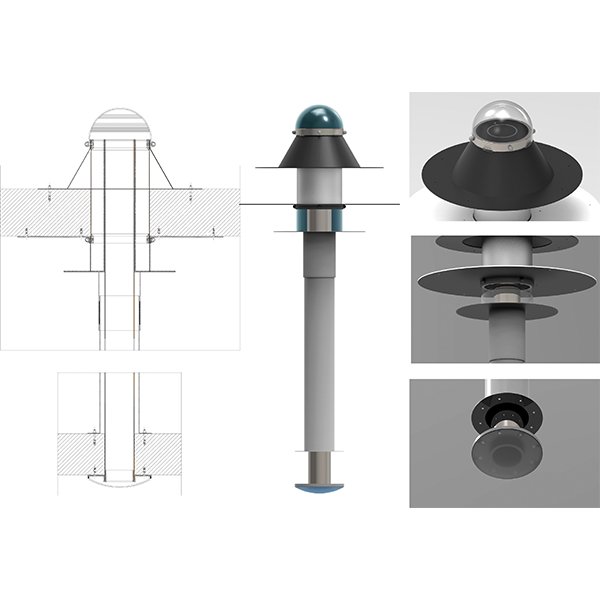
RESEARCH ARTICLE
Daylight Performance of the Modified Double Light Pipe (MDLP) Through
This paper focuses on the Modified Double Light Pipe (MDLP), an innovative daylighting system set up by the authors in the Laboratory of Technical Physics of the University “G. .
Journal of Daylighting 9 (2022) 164-176

RESEARCH ARTICLE
Optimal Window to Wall Ratio Ranges of Photovoltachromic Windows in
Windows are one of the weakest building components concerning high thermal losses. Traditional windows cannot adapt to external and internal environmental conditions.
Journal of Daylighting 8 (2021) 134-148
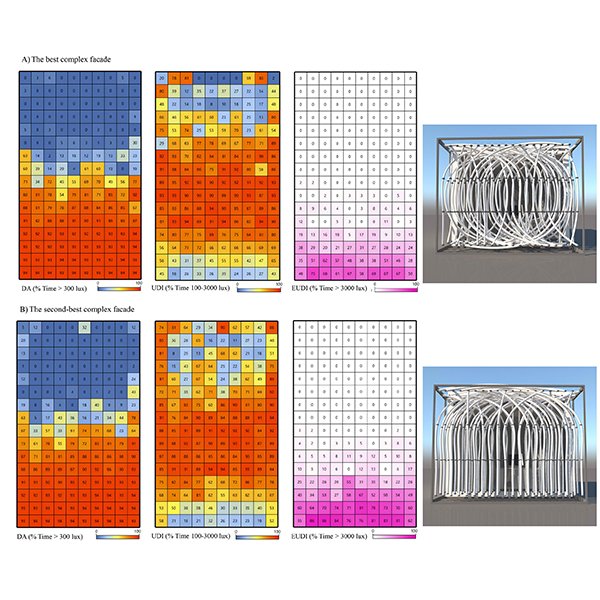
RESEARCH ARTICLE
Biomimetic Kinetic Shading Facade Inspired by Tree Morphology for Improving
Many recent studies in the field of the kinetic façade developed the grid-based modular forms through primary kinetic movements which are restricted in the simple shapes..
Journal of Daylighting 8 (2021) 65-85

RESEARCH ARTICLE
Exploring the Impact of Natural Light Exposure on Sleep of
Studies among people with dementia demonstrated that the sleep quality and rhythm improves significantly when people are exposed to ambient bright light.
Journal of Daylighting 5 (2018) 14-20
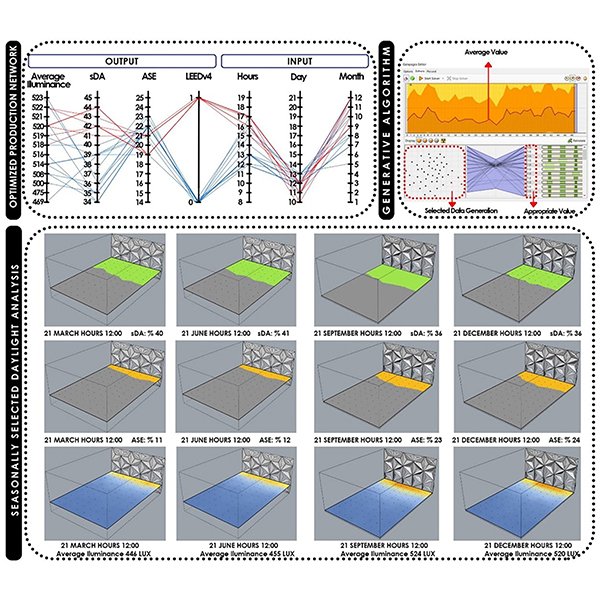
RESEARCH ARTICLE
Evaluation of Daylight and Glare Quality of Office Spaces with
There has been an increasing awareness in recent years about the evaluation of daylight and glare quality in buildings. In the study, an office space with a flat and a dynamic shading system facade (triangular cell facade) is discussed in the province of Mardin, which is in a hot and arid climate zone.
Journal of Daylighting 9 (2022) 197-208

RESEARCH ARTICLE
Lighting Energy Saving with Light Pipe in Farm Animal Production
The Swedish animal production sector has potential for saving electric lighting of €4-9 million per year using efficient daylight utilisation. To demonstrate this, two light pipe systems, Velux® (house 1) and Solatube® (house 2), are installed in two identical pig houses to determine if the required light intensity, daylight autonomy (DA), and reduced electricity use for illumination can be achieved. In.
Journal of Daylighting 2 (2015) 21-31

RESEARCH ARTICLE
Annual Performance Assessment of Complex Fenestration Systems in Sunny Climates
Complex Fenestration Systems (CFS) are advanced daylighting systems that are placed on the upper part of a window to improve the indoor daylight distribution within rooms.
Journal of Daylighting 2 (2015) 32-43
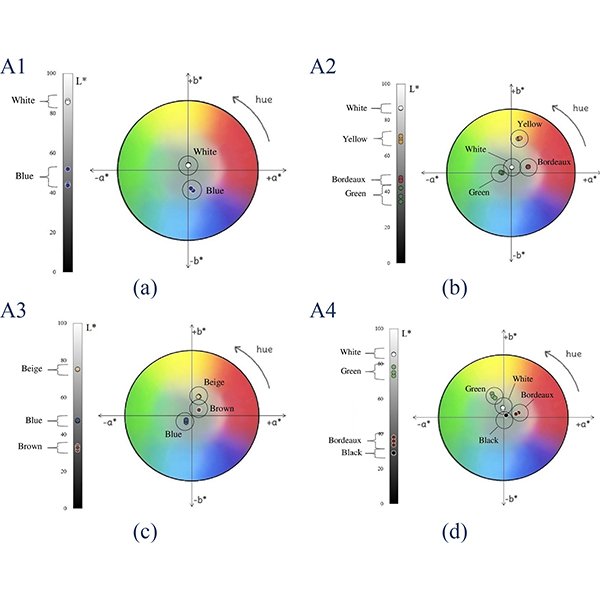
RESEARCH ARTICLE
Optical Characteristics of Traditional Portuguese Azulejos: Mixing Colors to Obtain “
The need to reduce energy consumptions in buildings brings modern research to focus on the use of natural sources. In this context, the interest towards traditional architecture has been fueled, since one of the characteristics identifying it is the intuitive and intrinsic link between the building and the surrounding environment.
Journal of Daylighting 7 (2020) 273-281

RESEARCH ARTICLE
Optimum Glazing Configurations for Visual Performance in Algerian Classrooms under
Daylight quality and quantity in Algerian schools show serious problems in ensuring visual comfort of students and teachers. Some problems are due to window design, which leads to excessive amount of sunlight penetration into the classrooms.
Journal of Daylighting 6 (2019) 11-22
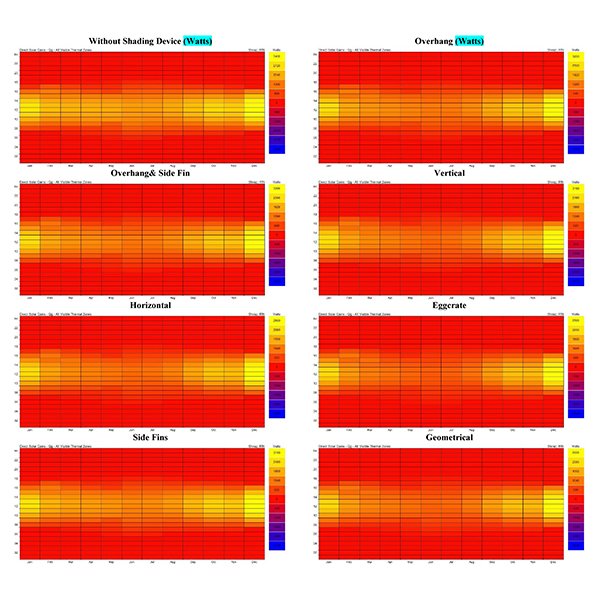
RESEARCH ARTICLE
The Effect of Fixed External Shading Devices on Daylighting and
Building shading devices can improve the thermal comfort in indoor environment, and also reduce cooling and heating energy consumption in dry and hot climate.
Journal of Daylighting 8 (2021) 165-180
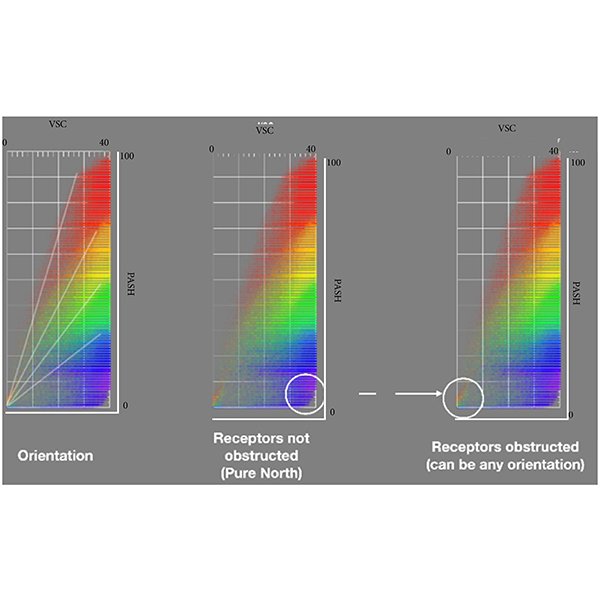
RESEARCH ARTICLE
Sunlight-Daylight Signature: a Novel Concept to Assess Sunlight and
Daylighting and solar availability at urban scale has come to play a crucial role in the perception of discomfort conditions for people, both in outdoor and indoor spaces, and on the energy consumption of buildings.
Journal of Daylighting 10 (2023) 136-152
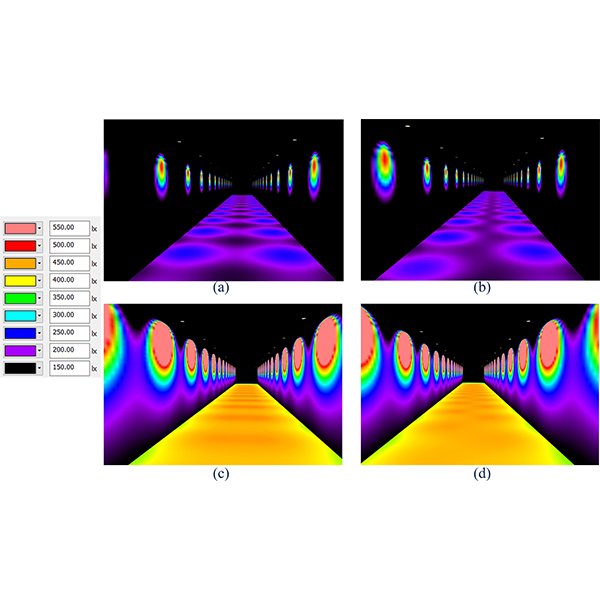
RESEARCH ARTICLE
Phasor Method to Estimate Illuminances Due to Parallel Arrays of
Direct horizontal illuminance along a calculation row due to two parallel arrays of large numbers of identical light sources behaves like a periodic signal with a sinusoidal pattern, which contains useful information for design purpose.
Journal of Daylighting 7 (2020) 246-257
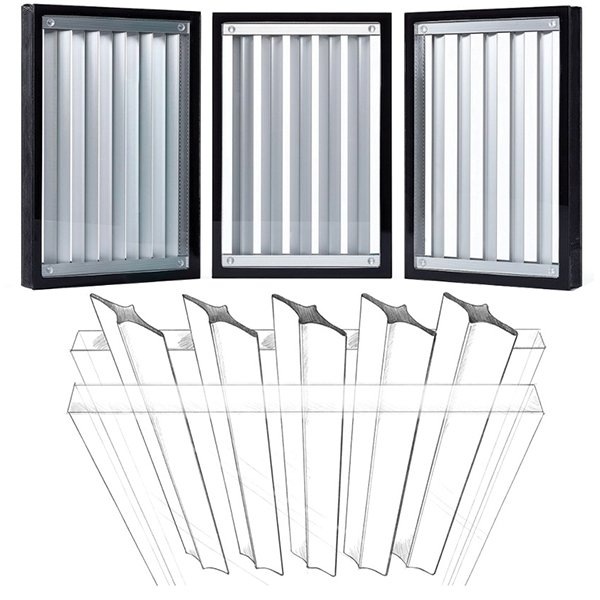
REVIEW ARTICLE
Daylight in Buildings and Visual Comfort Evaluation: the Advantages and
Exposure to daylight significantly affects the psychological well-being of occupants by diminishing headaches, eye tensions, or stress. Daylight penetration is a matter of collaboration between building façade and perimeter zones that can be controlled through façade design features. .
Journal of Daylighting 8 (2021) 181-203
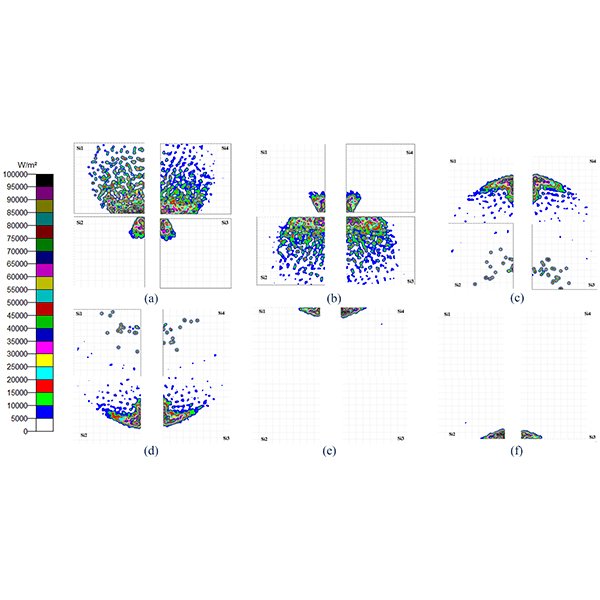
RESEARCH ARTICLE
Improvement of Optical Performances Using the Hybrid CPV
Hybrid Concentrated Photovoltaics (HCPVs) are systems in which additional low-cost silicone solar cells are added to take advantage of the power generated by the diffuse radiation lost when using only multi-junction cells that work only with direct radiation.
Journal of Daylighting 7 (2020) 238-245
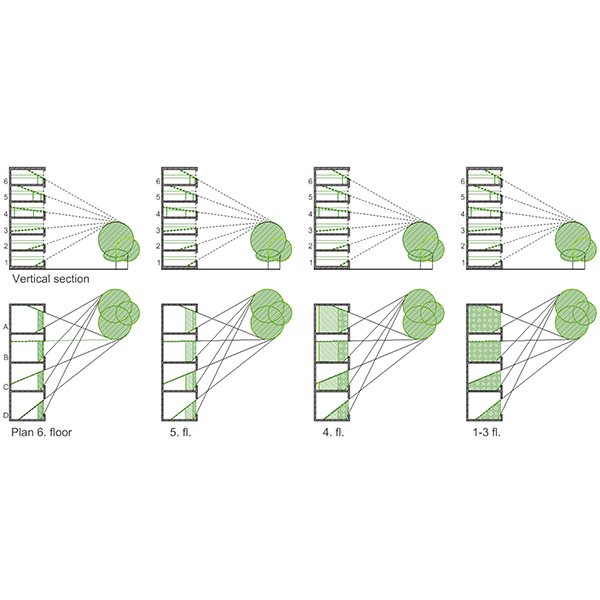
SHORT COMMUNICATION
No-Greenery Line and Greenery-View Factor, New Architectural Design
The paper proposes a new tool for evaluation of the degree of visual contact with the outdoor greenery, the Greenery-View factor (GV), intended to be easy to grasp and simple to use.
Journal of Daylighting 7 (2020) 282-286

RESEARCH ARTICLE
A New Trend for Indoor Lighting Design Based on A
Most power system planners are interested in the savings of electrical power consumption. Various references demonstrate that the highest consumed power is by the lighting systems standing around 19% of worldwide energy consumption.
Journal of Daylighting 7 (2020) 137-153

RESEARCH ARTICLE
Daylighting Evaluation and Optimisation of Window to Wall Ratio for
A base case model is a more potent dose for applied research; the passive architectural design for sustainability requires optimised experiments. However, experimenting with physical developments require construction and deconstruction until they achieved the optimal scenario.
Journal of Daylighting 8 (2021) 20-35
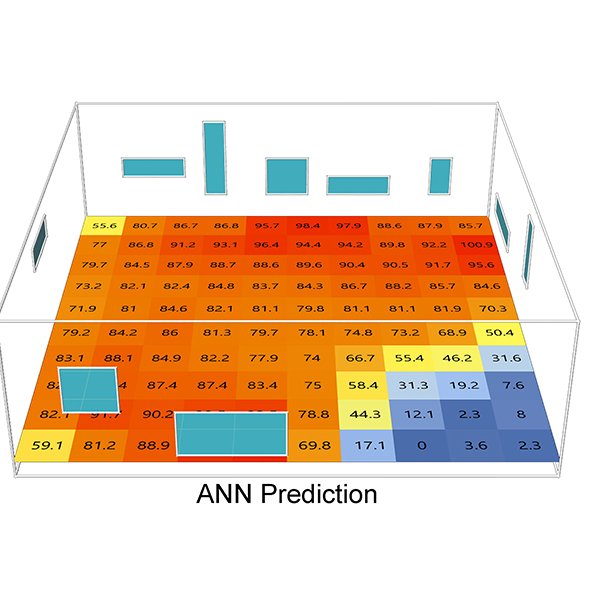
RESEARCH ARTICLE
Unfolding 3D Space into Binary Images for Daylight Simulation via
Daylighting plays a crucial role in building science, impacting both occupants’ well-being and energy consumption in buildings. Balancing the size of openings with energy efficiency has long been a challenge. .
Journal of Daylighting 10 (2023) 204-2013

RESEARCH ARTICLE
Impact of Window Design on Dynamic Daylight Performance in an
Window design affects the building's appearance. Besides, it has a significant impact on daylight performance and the visual comfort of interior spaces.
Journal of Daylighting 10 (2023) 31-44
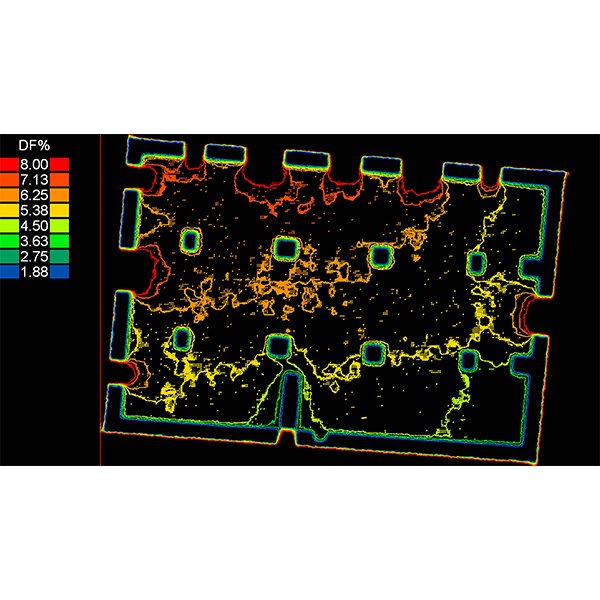
RESEARCH ARTICLE
Analysing the Daylighting Performance of the Main Prayer-hall in
This paper studies the daylighting quality of the indoor prayer-hall in The Great Upper Mosque of Hama city in Syria, highlighting this distinctive historical converted building that has been functioning as a mosque since the entry of Islam in the 6th century AD.
Journal of Daylighting 10 (2023) 153-172

RESEARCH ARTICLE
Measurement, Simulation, and Quantification of Lighting-Space Flicker Risk Levels
Building owners are transitioning towards a smart lighting solution for illumination purposes. LED (Light Emitting Diode) lighting application has become a norm given its high efficacy and energy efficiencies.
Journal of Daylighting 8 (2021) 239-254
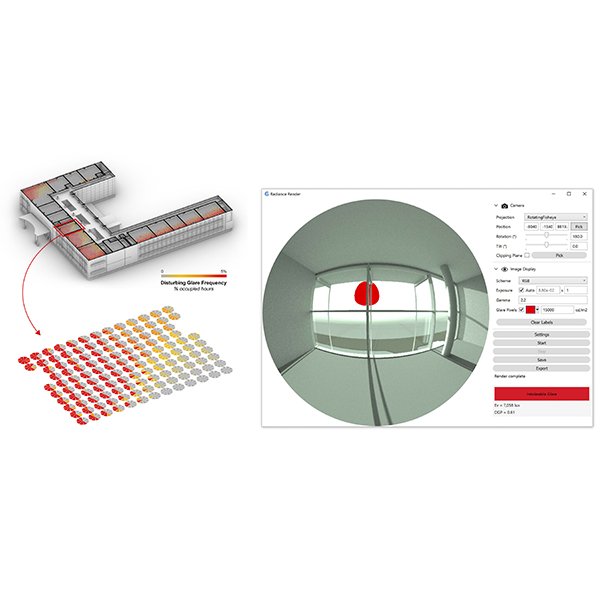
RESEARCH ARTICLE
The Effect of Parametric Patterned Façade Variations on Daylight
Parametric design influences on building envelope design are exponentially increasing in the current era due to the dominance of computational design on architectural outcomes.
Journal of Daylighting 10 (2023) 173-191
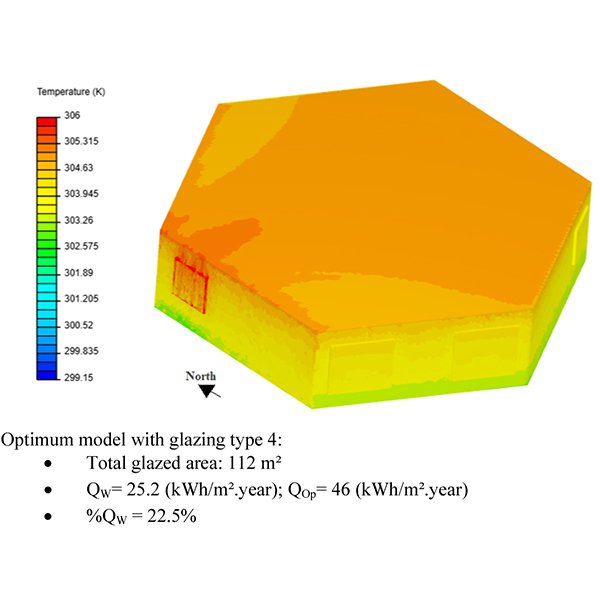
RESEARCH ARTICLE
Improvement of Daylight Factor Model for Window Size Optimization and
Based on a new approach for the prediction of the Daylight Factor (DF), using existing empirical models, this research work presents an optimization of window size and daylight provided by the glazed apertures component for a building located in a hot and dry climate.
Journal of Daylighting 8 (2021) 204-221

RESEARCH ARTICLE
Daylight utilization with light pipe in farm animal production: a
Light pipes, which are complex optical systems, offer a passive way to bring daylight to deep buildings, such as agricultural buildings. However, the lack of reliable performance predictability methods for light pipes represents a major obstacle preventing their widespread use.
Journal of Daylighting 3 (2016) 1-11

RESEARCH ARTICLE
Design and optical evaluation of a novel asymmetric lens-walled
Solar concentrating system is an effective way of combing solar energy with the building to satisfy the needs besides of electricity and hot water, also includes building heating, refrigeration, dehumidification, which require higher quality heat source.
Journal of Daylighting 4 (2017) 26-37
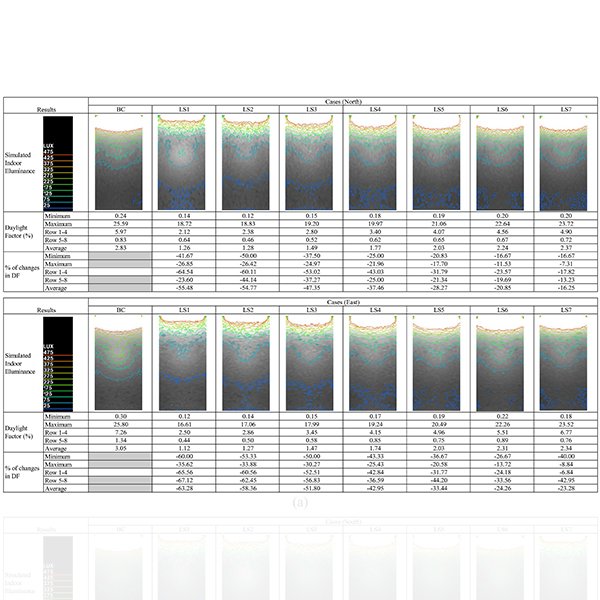
RESEARCH ARTICLE
Daylighting Performance of Integrated Light Shelf with Horizontal Light Pipe
Tropical countries such as Malaysia receives a significant amount of daylight. The utilisation of this renewable resource in a high-rise office building leads to opportunities and challenges.
Journal of Daylighting 9 (2022) 83-96
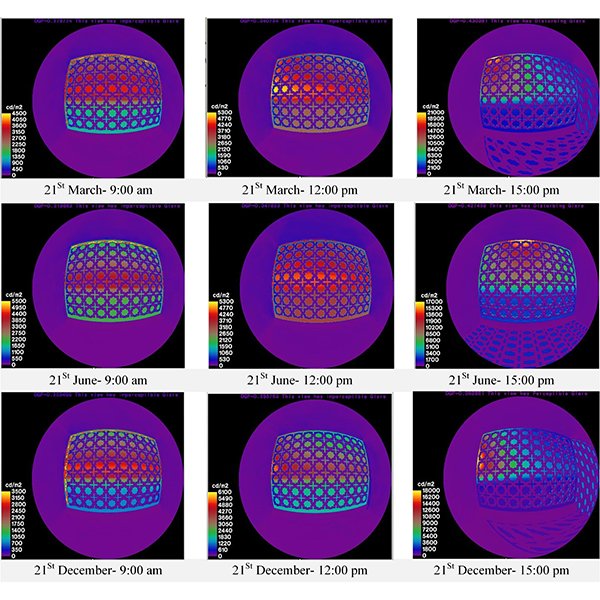
RESEARCH ARTICLE
The Role of Orosi’s Islamic Geometric Patterns in the
The form of the building facade significantly affects the amount of useful daylight admitted in the interior space. Striking a balance between the visual comforts of occupants and taking advantage of daylight is always a challenge and, therefore, investigating complex, geometric forms of Orosi patterns can be an effective way of improving visual comfort alongside the aesthetic aspects.
Journal of Daylighting 7 (2020) 201-221

RESEARCH ARTICLE
Daylighting metrics: an approach to dynamic cubic illuminance
Advances in research work in the field of numerical analysis of daylight performance have generated in-depth knowledge on photometric measurements of daylight quality.
Journal of Daylighting 5 (2018) 34-42
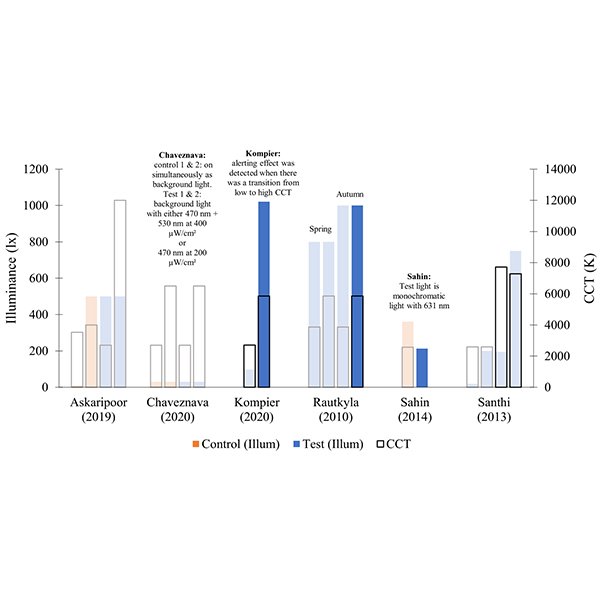
REVIEW ARTICLE
Alerting Effect of Light: A Review of Daytime Studies
Light affects humans beyond only image formation. Several studies have reported that light can increase daytime alertness and can therefore be positively utilized to counter daytime fatigue and increase productivity in workspaces.
Journal of Daylighting 9 (2022) 150-163

RESEARCH ARTICLE
Optical Analysis of a New Solar Distiller with Cylindrical Surface
In this paper, a new solar distiller floating on ocean with cylindrical surface concentrator and vertical gap evaporator is proposed for solving the problem of freshwater shortage in islands.
Journal of Daylighting 8 (2021) 100-109
 HOME
HOME